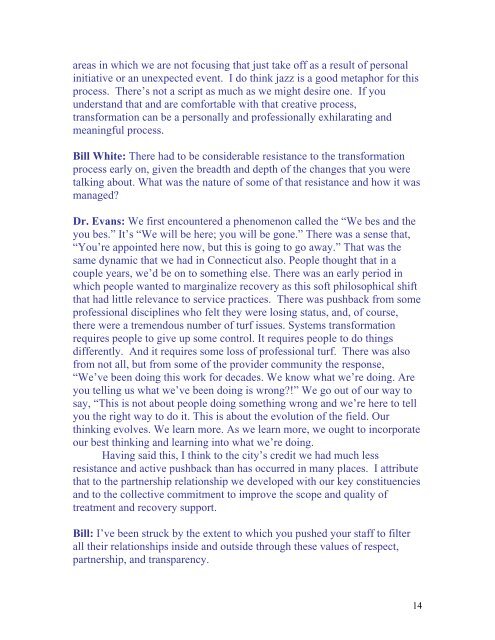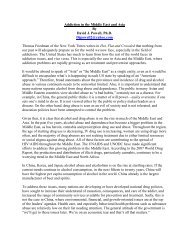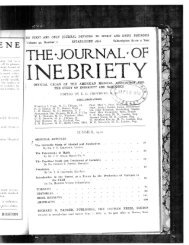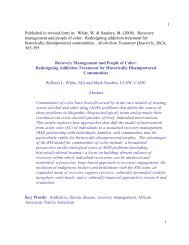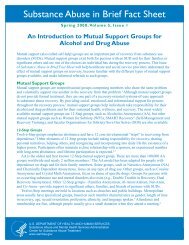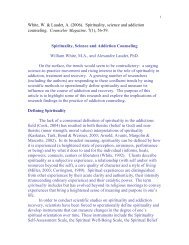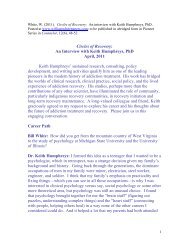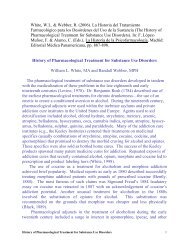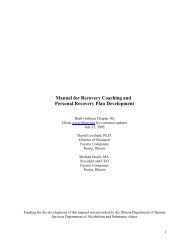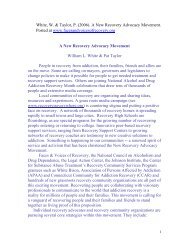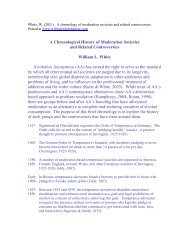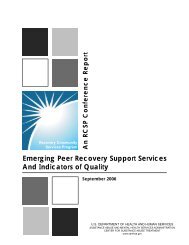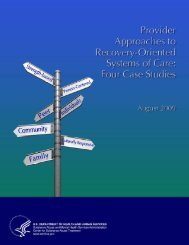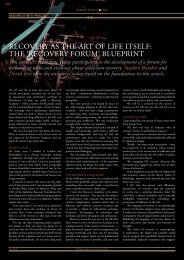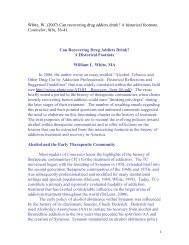An Interview with Arthur C. Evans, Jr., PhD Dr. Arthu - William L. White
An Interview with Arthur C. Evans, Jr., PhD Dr. Arthu - William L. White
An Interview with Arthur C. Evans, Jr., PhD Dr. Arthu - William L. White
- No tags were found...
You also want an ePaper? Increase the reach of your titles
YUMPU automatically turns print PDFs into web optimized ePapers that Google loves.
areas in which we are not focusing that just take off as a result of personalinitiative or an unexpected event. I do think jazz is a good metaphor for thisprocess. There’s not a script as much as we might desire one. If youunderstand that and are comfortable <strong>with</strong> that creative process,transformation can be a personally and professionally exhilarating andmeaningful process.Bill <strong>White</strong>: There had to be considerable resistance to the transformationprocess early on, given the breadth and depth of the changes that you weretalking about. What was the nature of some of that resistance and how it wasmanaged?<strong>Dr</strong>. <strong>Evans</strong>: We first encountered a phenomenon called the “We bes and theyou bes.” It’s “We will be here; you will be gone.” There was a sense that,“You’re appointed here now, but this is going to go away.” That was thesame dynamic that we had in Connecticut also. People thought that in acouple years, we’d be on to something else. There was an early period inwhich people wanted to marginalize recovery as this soft philosophical shiftthat had little relevance to service practices. There was pushback from someprofessional disciplines who felt they were losing status, and, of course,there were a tremendous number of turf issues. Systems transformationrequires people to give up some control. It requires people to do thingsdifferently. <strong>An</strong>d it requires some loss of professional turf. There was alsofrom not all, but from some of the provider community the response,“We’ve been doing this work for decades. We know what we’re doing. Areyou telling us what we’ve been doing is wrong?!” We go out of our way tosay, “This is not about people doing something wrong and we’re here to tellyou the right way to do it. This is about the evolution of the field. Ourthinking evolves. We learn more. As we learn more, we ought to incorporateour best thinking and learning into what we’re doing.Having said this, I think to the city’s credit we had much lessresistance and active pushback than has occurred in many places. I attributethat to the partnership relationship we developed <strong>with</strong> our key constituenciesand to the collective commitment to improve the scope and quality oftreatment and recovery support.Bill: I’ve been struck by the extent to which you pushed your staff to filterall their relationships inside and outside through these values of respect,partnership, and transparency.14


